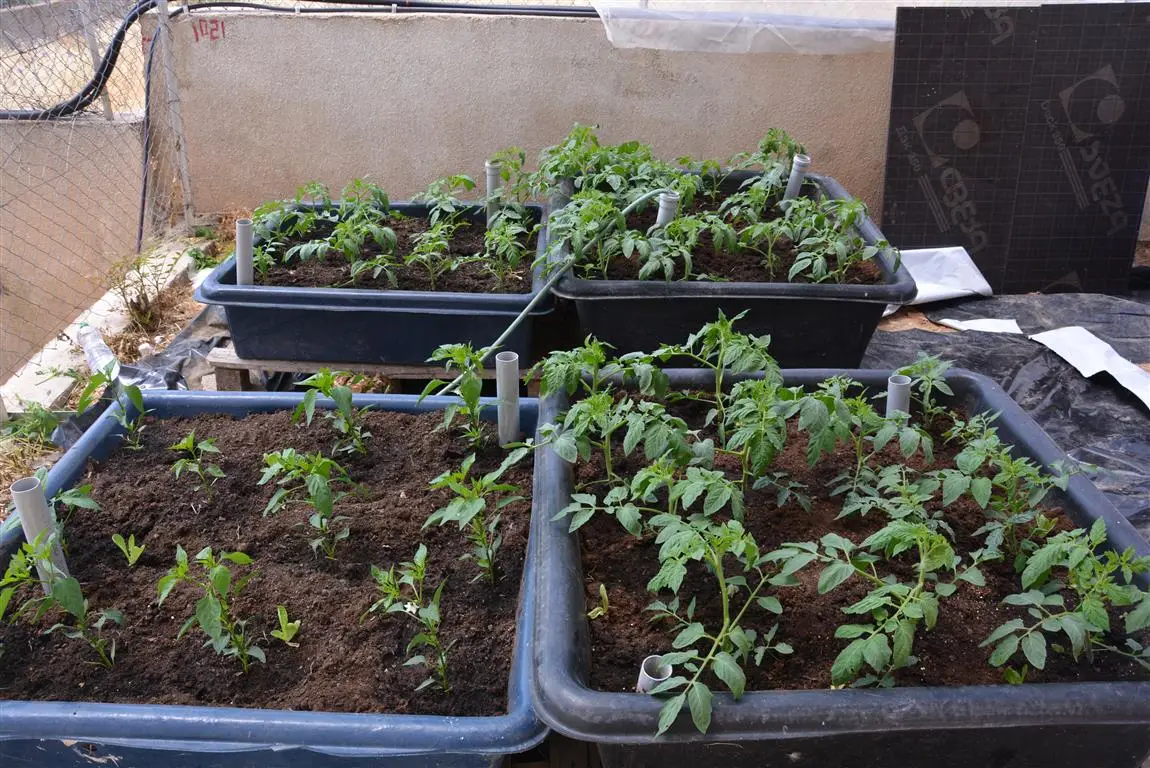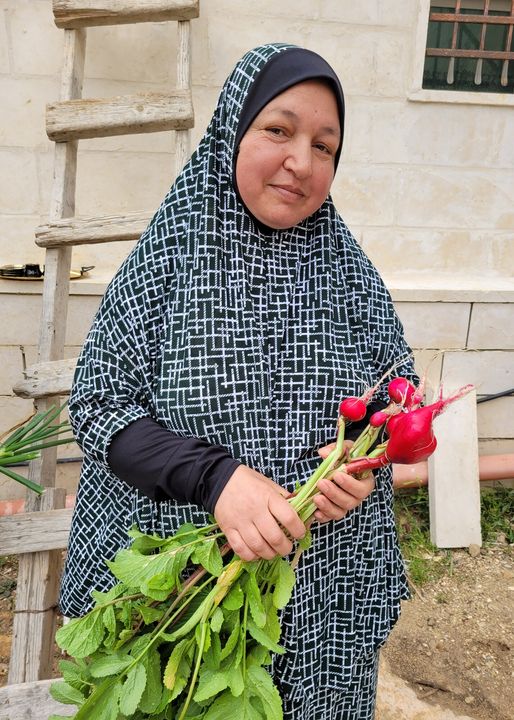Huda Al Takatka spends up to four hours a day tending her wicking garden near the town of Beit Fajjar, West Bank, Palestine. “It doesn’t really need that much time,” she says, beaming her infectious smile. “I just like spending time there … with my loved ones.” Those include her husband, Muhammad, six children and 11 grandchildren.
For almost a year, she has been able to grow the fresh vegetables in her four garden boxes, placed beside a tiny citrus and fig orchard in her yard. With Muhammad out of work because a visual impairment, vegetables used to be something she couldn’t always afford.
“Now we can grow what we like,” she says, “and they are much better than what we find at the market.” She grows radishes, onions, cabbages, eggplant, spinach and tomatoes.
Huda is one of 20 gardeners in the Bethlehem governorate who have benefited from the wicking garden project of the Applied Research Institute – Jerusalem (ARIJ), a longstanding MCC partner that promotes responsible land development within the realities of Israel’s military occupation of the West Bank. The MCC-funded pilot program not only boosts food security for low-income families, but also models a sustainable alternative for food production.


